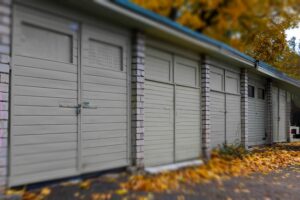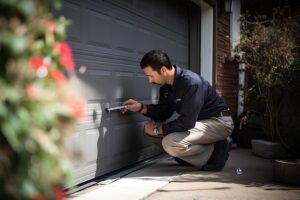DIY projects can be rewarding. They offer a sense of accomplishment and can save money.
But when it comes to garage door repairs, the stakes are high.
Garage doors are complex systems. They require precise adjustments and specialized knowledge.
DIY repairs can lead to further damage, void warranties, or even cause injuries. The risks often outweigh the potential savings.
In this article, we’ll explore why DIY garage door repairs may not be the best idea. We’ll delve into the hidden dangers, costs, and legal implications.
We’ll also highlight the value of professional services.
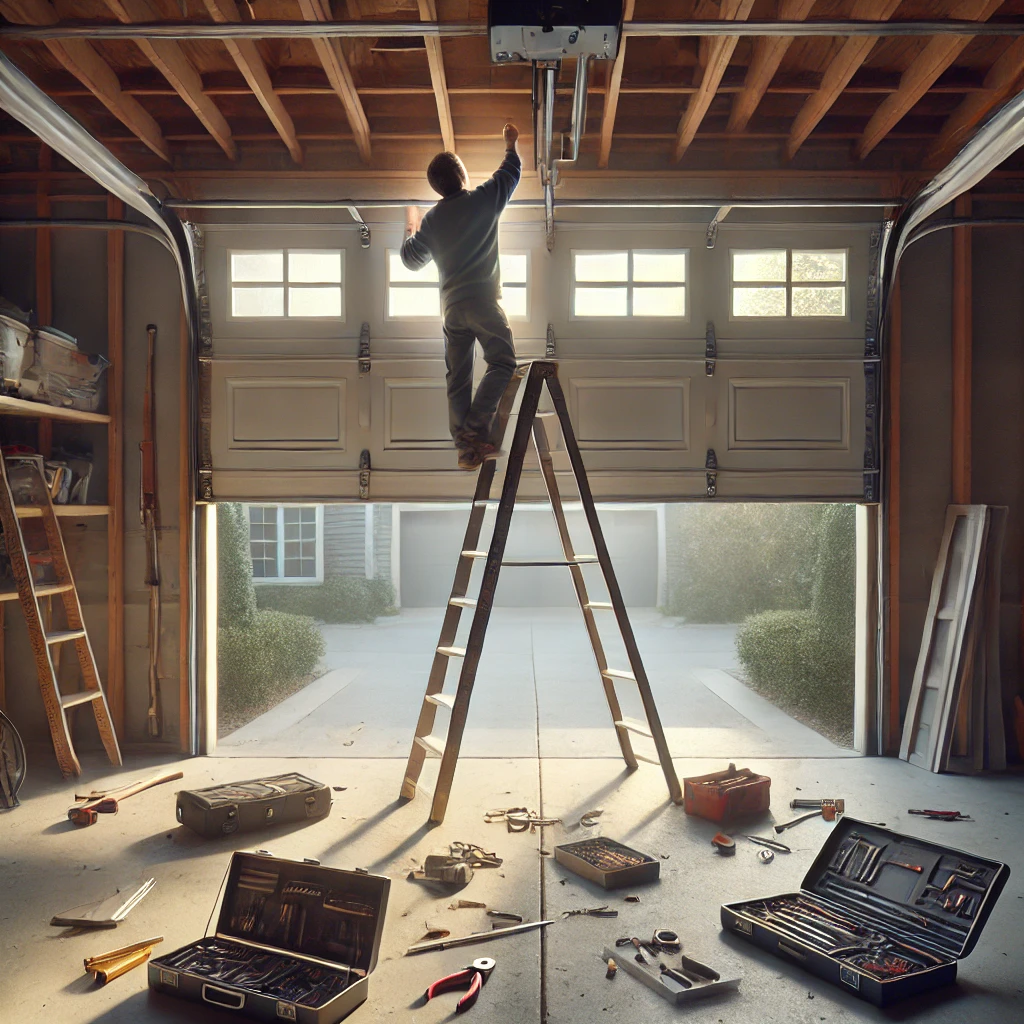
Understanding Garage Door Mechanics and Risks
Garage doors are more than just large moving objects. They are intricate systems with many interconnected parts.
Springs, cables, rollers, and openers all work together. They ensure smooth and safe operation.
But this complexity also means there’s a lot that can go wrong. A single misstep in DIY repairs can lead to further issues.
For instance, garage door springs are under high tension. If mishandled, they can cause serious injuries.
Similarly, safety sensors need proper alignment. Incorrect adjustments can lead to accidents.
Understanding these risks is crucial before embarking on DIY garage door repairs.
Common DIY Garage Door Repairs and Their Hidden Dangers
Many homeowners attempt common garage door repairs themselves. These include replacing springs, aligning sensors, and fixing openers.
While these tasks may seem straightforward, they come with hidden dangers.
Replacing garage door springs, for instance, is a common DIY repair. But it’s also one of the most dangerous.
Similarly, aligning safety sensors may seem simple. But incorrect alignment can lead to accidents.
Fixing garage door openers is another common DIY task. But it requires knowledge of electrical systems and can be complex.
Here are some common DIY repairs and their potential risks:
- Replacing springs: Risk of injury due to high tension
- Aligning sensors: Risk of accidents due to improper alignment
- Fixing openers: Risk of electrical shock and complex troubleshooting
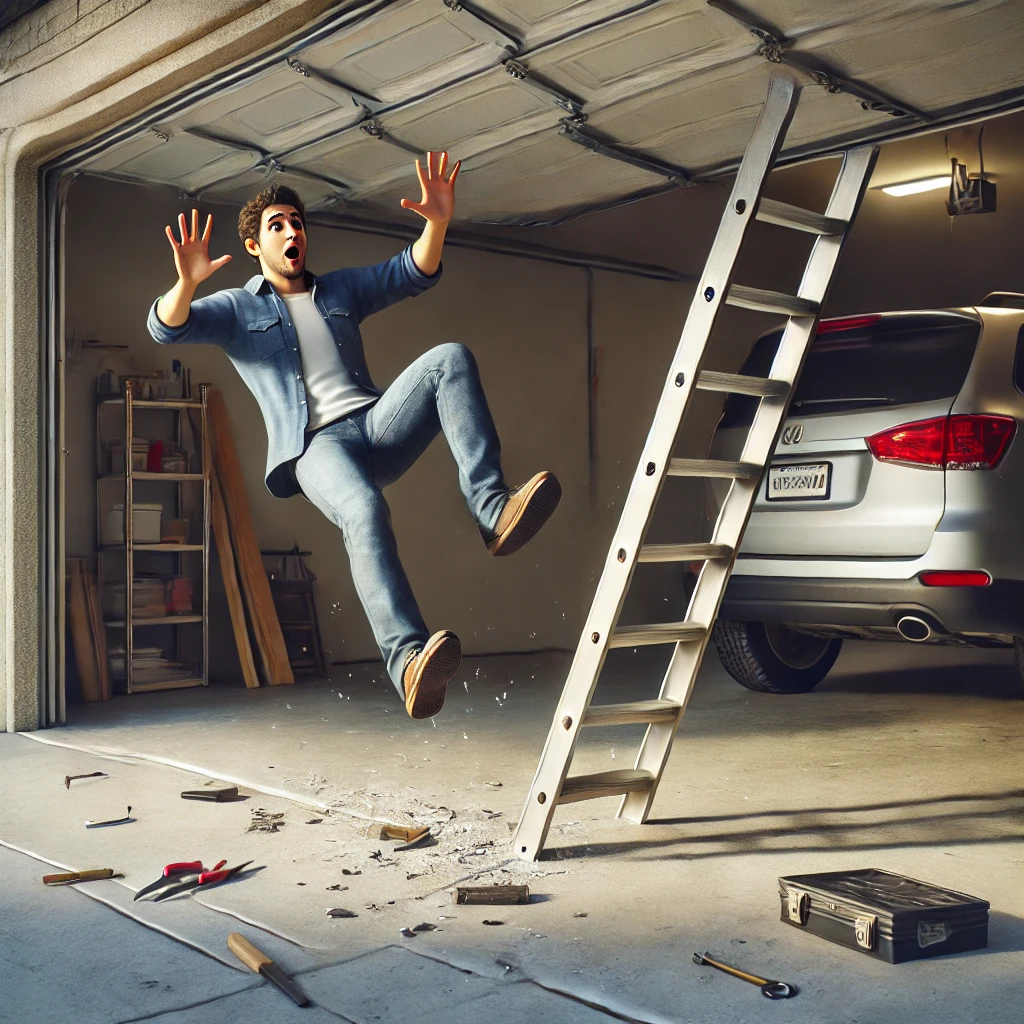
The Perils of Tinkering with Tension Springs
Garage door springs are under high tension. They can cause serious injuries if mishandled.
Many homeowners underestimate this risk. They attempt to replace springs themselves.
But even a small mistake can lead to the spring snapping. This can cause property damage or personal injury.
It’s also easy to install the wrong type of spring. This can lead to uneven lifting and additional strain on the door.
The risks of DIY spring replacement far outweigh the potential cost savings.
Why Misaligned Sensors Are a No-Go Zone for DIY
Garage door sensors ensure safe operation. They stop the door from closing if there’s an obstruction.
But aligning these sensors requires precision. Even a slight misalignment can cause the door to close unexpectedly.
This can lead to accidents, especially if children or pets are around.
Moreover, troubleshooting sensor issues can be complex. It’s easy to misdiagnose the problem and make it worse.
Again, the risks of DIY sensor alignment outweigh the potential savings.
The Complexity of Fixing Garage Door Openers
Garage door openers are complex devices. They involve electrical systems and require precise adjustments.
Many homeowners attempt to fix openers themselves. But this can lead to further issues.
For instance, incorrect repairs can disrupt the balance of the door. This can lead to uneven wear and tear.
Moreover, working with electrical systems carries the risk of shock.
Finally, DIY repairs may not address the root cause of the problem. This can lead to recurring issues and additional costs.
The Real Cost of DIY Garage Door Repairs
At first glance, DIY garage door repairs may seem cost-effective. You might think you’re saving money by not hiring a professional.
But when you factor in the cost of tools and parts, the picture changes.
You’ll need specialized tools for many repairs. These can be expensive.
Then there’s the cost of parts. High-quality parts often come at a premium.
And if you make a mistake, you’ll have to pay for emergency services. These can be costly.
Here are some hidden costs of DIY repairs:
- Tools: Specialized tools can be expensive
- Parts: High-quality parts often come at a premium
- Emergency services: Mistakes can lead to costly emergency repairs
Tools and Parts: A Hidden Expense
Many homeowners overlook the cost of tools and parts. They focus on the labor cost they’re saving.
But specialized tools can be expensive. And you might not use them again.
Similarly, high-quality parts can be costly. And you might end up buying the wrong parts.
In the end, the cost of tools and parts can approach the cost of professional repair.
When DIY Leads to Do-Over: The Price of Mistakes
Mistakes are common in DIY repairs. And they can be costly.
For instance, a wrongly installed spring can damage the door. This can lead to expensive repairs.
Similarly, a misaligned sensor can cause accidents. This can result in injury and property damage.
Finally, if you can’t fix the problem, you’ll have to call for emergency services. These can be significantly more expensive than regular services.
Legal and Insurance Implications of DIY Repairs
DIY repairs can have legal implications. For instance, non-compliant repairs can violate local building codes.
This can lead to fines or legal action. It can also affect your home’s resale value.
DIY repairs can also affect your insurance. If a DIY repair leads to damage, your insurance may not cover it.
In fact, some insurance policies specifically exclude damage caused by DIY repairs. So, before you start a DIY project, check your insurance policy.
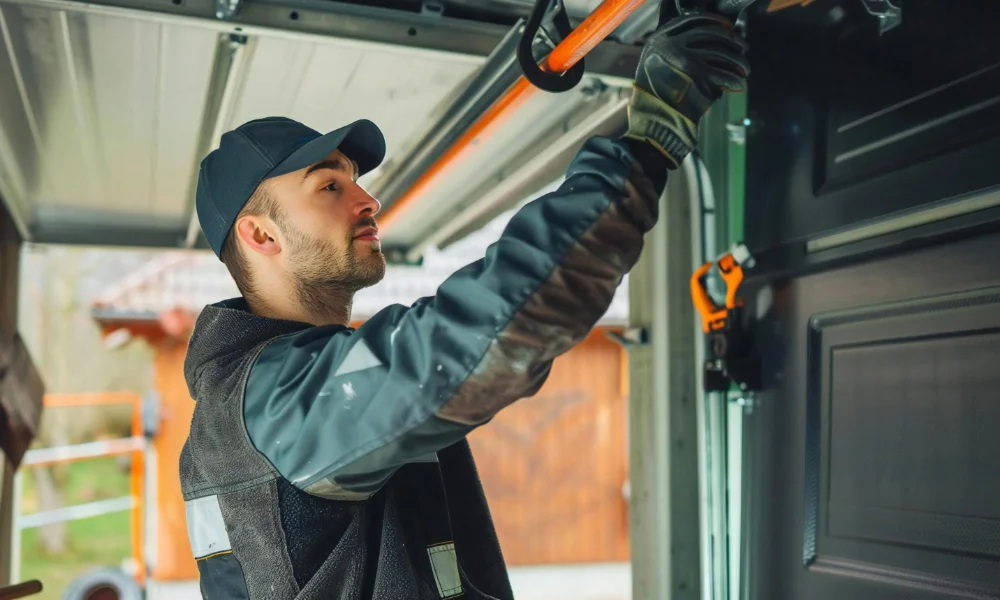
The Value of Professional Garage Door Services
Professional garage door services offer many benefits. They have the expertise and tools to do the job right.
They can diagnose and fix issues quickly. This saves you time and effort.
Professionals also have access to high-quality parts. These parts can last longer and perform better.
They can also provide advice on maintenance and upgrades. This can help you avoid future issues.
Expertise and Efficiency: What You Gain
Professional technicians have years of training and experience. They can identify and fix issues that you might miss.
They also work efficiently. They can complete repairs faster than a DIY enthusiast.
This means less downtime for your garage door. And less hassle for you.
In the long run, hiring a professional can actually save you time and money.
Warranty and Peace of Mind: The Long-Term Benefits
Many professional services come with a warranty. This means if the repair fails, they will fix it for free.
This can provide peace of mind. You know that the job is done right.
And if something goes wrong, you’re covered.
In contrast, DIY repairs come with no guarantees. If you make a mistake, you’re on your own.
Weighing the Costs and Risks
DIY garage door repairs may seem like a cost-saving measure. But the risks and potential costs can outweigh the savings.
Mistakes can lead to further damage. This can result in costly emergency repairs.
There’s also the risk of personal injury. Garage doors are heavy and their parts are under high tension.
In the end, hiring a professional may be the safer and more cost-effective choice. It’s worth considering before you decide to go the DIY route.

